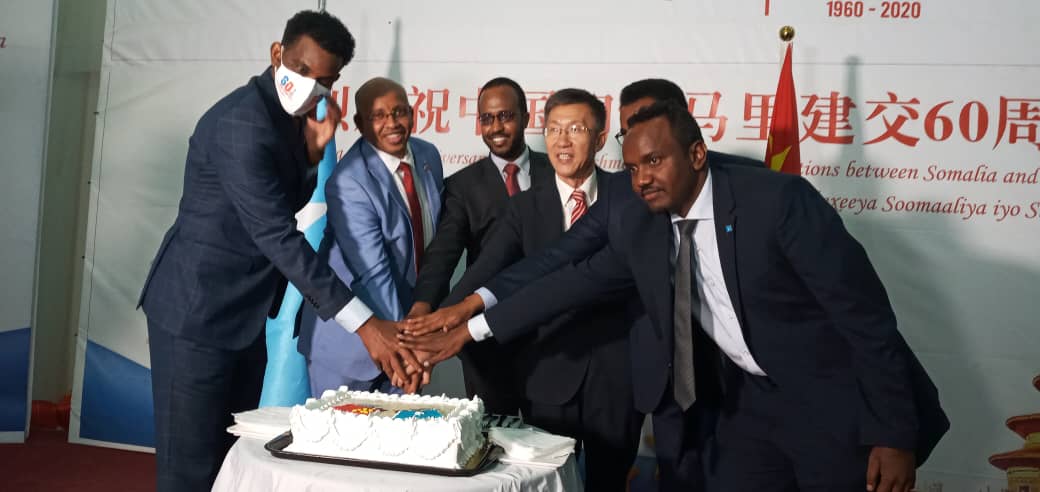Not long ago, the Fifth Plenary Session of the 19th Central Committee of the Communist Party (CPC) of China was held in Beijing. The session examined and approved the Proposals of the CPC Central Committee for Formulating the 14th Five-Year Plan for National Economic and Social Development and the Long-Range Objectives Through the Year 2035. It has made systematic and strategic plans regarding the objectives set through the year 2035 and the economic and social development during the 14th Five-Year Plan period (2021-2025).
The 14th Five-Year Plan period is the first five years after China has made in completing the building of a moderately prosperous society in all respects and achieved the first Centennial goal, a new journey of building a modern socialist country in an all-round way and marching towards the second Centennial goal. China has entered a new stage of development. The 13th Five-Year Plan period is the decisive stage for China to build a moderately prosperous society in all respects. During the 13th Five Year Plan period, 55.75 million rural poverty people in China have been lifted out of poverty, and the absolute poverty will be solved by the end of 2020. China has built the world’s largest social security system, with basic medical insurance covering more than 1.3 billion people and basic endowment insurance covering nearly 1 billion people, people’s living standards have improved significantly. China’s modernization is the modernization of a huge population, the common prosperity of all the people, the coordination of material and spiritual civilization, the harmonious coexistence of man and nature, and the path of peace and development.
The Proposals is that after achieving a society of moderate prosperity in all respects, China will embark on a new journey toward building a modern socialist country. China will take hold the new stage of development, thoroughly implement the new development philosophy and accelerate a new development paradigm. China will take pursuing high-quality development as the main theme and deepening supply-side structural reforms as the main task, and strive to achieve steady and sustained economic progress and maintain social stability and harmony, so as to ensure a good start for building a modern socialist country in all respects. The Proposals highlight three new aspects: a new development stage, a new development philosophy, and a new development paradigm.
As we have seen, economic globalization is currently encountering headwinds, unilateralism and protectionism are rising, the COVID-19 pandemic has brought about extensive and profound impacts, and traditional international economic circulation has been substantially weakened, or even hampered. Against this backdrop, strengthening domestic circulation allows us to enhance the resilience of our economic development, and at the same time increase international circulation, thus allowing the two circulations to boost one another. One commonality between major economies is that domestic circulation can suffice. Like other major economies, China, as the world’s second largest economy, has made domestic supply and demand the mainstay of its economic circulation. China’s economic growth is increasingly dependent on domestic consumption and investment.
It is necessary to point out that the new paradigm stresses dual circulation rather than domestic circulation on its own. By saying domestic circulation, we mean “wide circulation” based on a unified domestic market, rather than self-centered “small circulations” based on local markets. It does not mean we will foster separate circulations in each and every province, city or county.
To foster a new development paradigm, we should first adhere to expanding domestic demand as the strategic foundation, facilitate national economic circulation, and remove various barriers to production, distribution, logistics and consumption. To remove these barriers, we should deepen supply-side structural reform and achieve major breakthroughs in key areas and linkages. We should increase research into core technologies and ensure the safety and stability of industrial and supply chains. We should optimize the structure of income distribution to expand the size of the middle-income group. We should develop a modern logistics system, improve the consumption environment to promote consumption upgrading, and take full advantage of the country’s huge market. In this way, not only can we boost the domestic economy, we can also create more market opportunities for the rest of the world.
We should ensure deeper involvement in the international circulation, which is an integral part of China’s efforts to establish a new development paradigm. We should promote higher levels of opening-up and expand market entry for foreign-invested enterprises to better use resources from both domestic and international markets. Markets are a scarce global resource. We should build a market-oriented and international business environment based on the rule of law. Relying on the strong domestic market, we should turn the country into a magnet for high-quality global resources, and make China a fertile land for foreign investment and enterprises, thus allowing domestic and international markets to boost each other and promoting mutual benefits and common prosperity with other countries. Therefore, fostering a new development paradigm by no means signifies the weakening of the country’s efforts to open up. On the contrary, China will see a steady rise in its foreign trade volume, the utilization of foreign capital, as well as its outbound investment, and China’s international standing will also continue to rise, which is an important hallmark of major economies.
This year marks the 60th anniversary of the establishment of diplomatic relations between China and Somalia. Since the establishment of diplomatic ties, China has achieved fruitful results in various fields of friendly cooperation. Somalia has made remarkable achievements in peace and development and is now in a critical period of national development and progress. The Somali Government has formulated its 9th Fifth-Five Year National Development Plan with many specific targets. It is hoped that both sides will strengthen cooperation. China is ready to share its development experience with Somalia and help Somalia develop independent economy, increase jobs and improve people’s livelihood. The Chinese side positively encourages its enterprises to invest in Somalia. With the joint efforts of both sides, the cooperation between China and Somalia will share vast prospects and surely benefit the two peoples.
Qin Jian, Chinese Ambassador to Somalia





